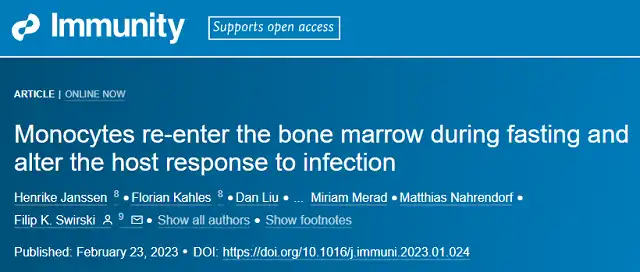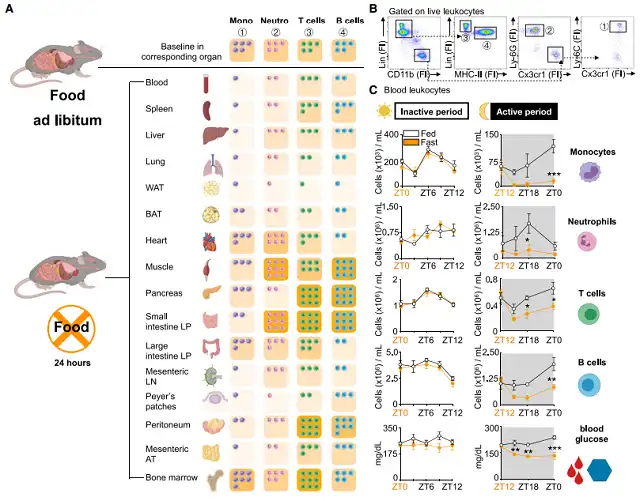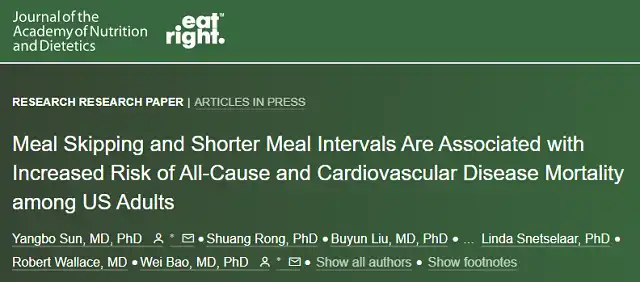Fasting damages the immune system and increases the risk of heart diseases
- EB Virus Could Be Infected by Kiss: A Hidden Threat Linked to Cancer
- The Silent Threat: How Gas Stoves Pollute Our Homes and Impact Health
- Paternal Microbiome Perturbations Impact Offspring Fitness
- New Report Casts Doubt on Maradona’s Cause of Death and Rocks Manslaughter Case
- Chinese academician unable to provide the exact source of liver transplants
- Early Biomarker for Multiple Sclerosis Development Identified Years in Advance
Fasting damages the immune system and increases the risk of heart diseases
- AstraZeneca Admits for the First Time that its COVID Vaccine Has Blood Clot Side Effects
- Was COVID virus leaked from the Chinese WIV lab?
- HIV Cure Research: New Study Links Viral DNA Levels to Spontaneous Control
- FDA has mandated a top-level black box warning for all marketed CAR-T therapies
- Can people with high blood pressure eat peanuts?
- What is the difference between dopamine and dobutamine?
- How long can the patient live after heart stent surgery?
Fasting damages the immune system and increases the risk of heart diseases.
As society develops, some people do not have enough time to eat three meals a day due to busy work and fast-paced life, and some people skip breakfast or dinner for weight loss. Little do they know that this can harm their health.
Recently, researchers from the Icahn School of Medicine at Mount Sinai and Harvard Medical School published a research paper titled “Monocytes re-enter the bone marrow during fasting and alter the host response to infection” in the journal Immunity.
The study showed that skipping breakfast may damage the immune system, hinder resistance to infection, and may increase the risk of heart disease. The mouse model study showed for the first time that skipping breakfast triggers a stress response in the brain, which has a negative impact on immune cells.

In the study, the researchers analyzed two groups of mice, one group ate breakfast immediately after waking up, and the other group skipped breakfast. Blood samples were collected from both groups when the mice woke up, four hours later, and eight hours later.
When analyzing the blood samples, the researchers observed a significant difference in the number of monocytes in the fasting group. Monocytes are white blood cells that are produced in the bone marrow and circulate in the body. They play an important role in fighting infection, heart disease, cancer, and other diseases.
Specifically, when the mice just woke up, all mice had the same number of monocytes. But four hours later, the number of monocytes in the fasting group dropped sharply, and 90% of the cells disappeared from the blood. After eight hours, the number further decreased. In contrast, the non-fasting group’s monocytes were unaffected.
Further analysis found that in fasting mice, monocytes returned to the bone marrow and entered a dormant state. At the same time, the production of new cells in the bone marrow decreased.
Usually in the bone marrow, these cells have a short lifespan. However, in fasting animals, because they stay in the bone marrow, they survive longer and have different ages than monocytes that stay in the blood.

Fasting changes white blood cell distribution
Next, the researchers let the mice fast for 24 hours and then fed them again. Within a few hours, the cells hidden in the bone marrow quickly returned to the blood, causing inflammation levels to rise.
The researchers said that these altered monocytes not only cannot prevent infection, but are more inflammatory, reducing the body’s ability to resist infection.
Finally, the researchers found that specific areas of the brain control monocyte responses during fasting, indicating that fasting causes a stress response in the brain, which is why you feel hungry. This will immediately trigger a large-scale migration of white blood cells from blood to bone marrow, and then return to blood shortly after eating.
In addition, skipping breakfast is associated with higher cardiovascular disease mortality.
Researchers from the University of Iowa and Tennessee University published a research paper titled “Meal Skipping and Shorter Meal Intervals Are Associated with Increased Risk of All-Cause and Cardiovascular Disease Mortality among US Adults” in Journal of Academy of Nutrition and Dietetics.
The study found that eating three meals a day, skipping any meal increases mortality risk. People who eat only one meal a day have an 83% increased risk of cardiovascular disease mortality and a 30% increased risk of all-cause mortality. Skipping breakfast increases cardiovascular disease mortality risk by 40%. And skipping lunch or dinner increases all-cause mortality risk by 12% and 16%, respectively.

Paper links:
https://doi.org/10.1016/j.immuni.2023.01.024
https://doi.org/10.1016/j.jand.2022.08.119
Fasting damages the immune system and increases the risk of heart diseases.
(source:internet, reference only)
Disclaimer of medicaltrend.org
Important Note: The information provided is for informational purposes only and should not be considered as medical advice.



